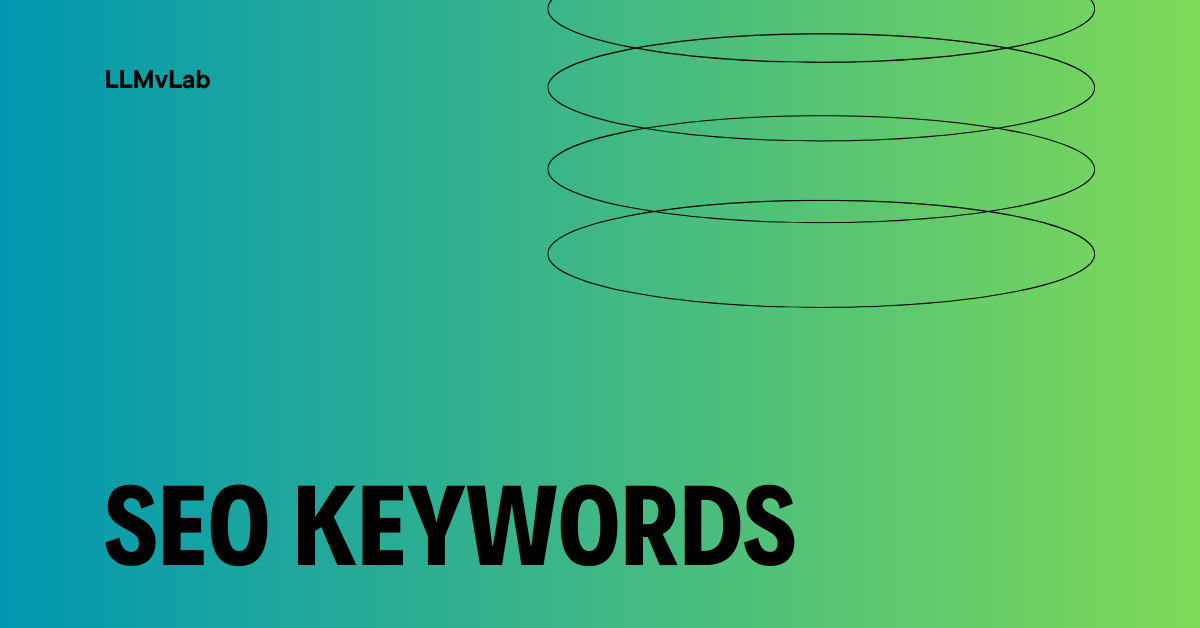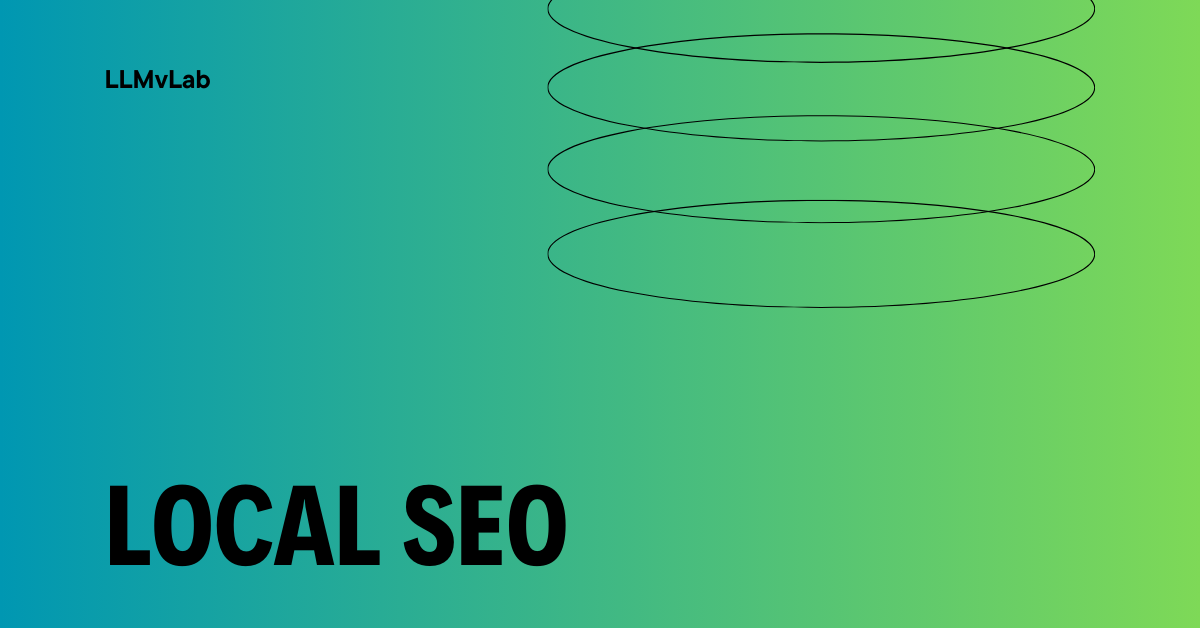LLM Visibility and Brand Presence in AI Search
Search is evolving. Surveys show that 44% of users already trust AI-generated answers (like Google Overviews or ChatGPT responses) for information [1], and over 70% of U.S. consumers use AI tools in their searches [3]. Meanwhile, experts predict traditional search engines could lose half their share by 2028 as people increasingly turn to AI for answers [4].
In practice, this means fewer clicks on brand websites — one study found that heavy AI usage (80% of users relying on AI 40% of the time) can cut organic site traffic by 15–25% [5].
The answer is AI SEO or LLM optimization — a new discipline focused on making brands visible inside large language models (LLMs) like ChatGPT, Gemini, Claude, and Google’s AI Overviews [6]. Search Engine Land describes LLM optimization as improving how brands surface in AI-generated results [6]. Some agencies refer to this as Answer Engine Optimization (AEO) [7]. The goal is simple: when AI tools generate an answer, your brand appears in that answer.
The Rise of AI Search: New Challenges for Brands
AI answers aren’t typical SERPs. Instead of a list of links, AI tools deliver concise, opinionated responses [8]. Edelman notes: “If you are not top of the field, you could effectively be invisible.” [8]
This means brands that previously ranked in the top 10 might now be completely omitted from AI summaries. Since AI responses sound authoritative, inaccuracies or missing mentions can harm brand credibility [9].
Importantly, you can’t buy LLM visibility. Edelman’s research found that up to 90% of citations influencing AI visibility come from earned media — trusted press coverage and authoritative content — rather than ads or keyword tactics [2]. Therefore, PR, thought leadership, and high-authority publishing matter more than ever.
Key Factors Influencing LLM Visibility
Brand mentions & authority: Frequent brand mentions across the web — news articles, blogs, forums — strongly correlate with being cited in AI answers [10][11]. Ahrefs found that AI summaries reflect how often a brand is mentioned or linked elsewhere [10].
Content quality & expertise: LLMs prefer content that shows expertise, trustworthiness, and originality [12]. Well-researched, fact-based content is more likely to be used.
Citations, quotes & structured data: Including authoritative citations or statistics can increase AI visibility by up to 40% [13]. Schema markup, entity references, FAQs, and product schema all make content easier for LLMs to understand [13].
Content freshness: AI tools often prioritize newer information, especially those using real-time data or retrieval systems [14]. Regularly updated content improves LLM visibility.
Trusted sources: Models like ChatGPT, Gemini, Perplexity, and Google Overviews frequently cite Wikipedia, major news publications, and reputable review sites [15]. Getting featured on these sources boosts your visibility.
Strategies for AI SEO and Answer Engine Optimization
AEO and AI SEO practices: AI SEO, GEO (generative engine optimization), and AEO describe optimizing content for AI answers [7][16]. This includes:
• hierarchical headings • clearly labeled sections • consistent entity tagging • Q&A formats • structured bullets • addressing common AI user queries [17]
Tracking visibility: Brands now use AI-specific tools to track citations. One common method is to poll LLMs with seed queries (250–500 high-intent questions) across ChatGPT, Gemini, and other models [18]. Tools then log whether the brand is mentioned, producing a share-of-voice metric [19]. Platforms like Profound, Conductor, OpenForge, and Semrush provide such tracking [20].
Brand audit in LLMs: SEO teams often run manual sample queries such as “best [product]” or “top [industry] companies” in ChatGPT or Perplexity [21]. If the brand doesn’t appear, that signals a visibility gap.
AI analytics tools: Semrush’s AI Visibility Toolkit tracks mentions, sentiment, share of voice, competitor comparisons, and unbranded queries across multiple AI models [22].
Optimize for citations: Because AI answers frequently quote external sources, brands should strengthen third-party signals: media features, expert roundups, guest articles, interviews, research contributions, and citations from authoritative sites [23].
Balancing SEO Fundamentals with LLM Optimization
Experts emphasize that LLM optimization should complement, not replace, traditional SEO. AI tools still rely on fundamental SEO signals such as crawlability, E-E-A-T, site performance, and backlinks [24].
The consensus: Continue strong SEO practices while layering in LLM optimization [25].
This means ranking content should also use proper entity naming, schema, citations, and structured content that AI systems can interpret.
Conclusion
LLM-driven search is reshaping how customers discover brands. To stay visible, companies must expand their SEO playbook: optimize content for AI search, build authoritative signals, and track “LLM visibility” just as they track keyword rankings. This includes adopting an AEO mindset while maintaining core SEO foundations.
Thriving in the AI era requires blending traditional SEO with emerging AI SEO strategies so your brand is cited, linked, and visible inside AI-generated answers [10][25].
Bibliography
• DeMott, Paul. LLM Optimization in 2026: Tracking, Visibility, and What’s Next for AI Discovery. Search Engine Land, Oct. 28, 2025 [6][25]. • Bradley, Sam. In Graphic Detail: How AI Search Is Changing Brand Visibility. Digiday, Oct. 29, 2025 [26][10]. • Taylor, Nick. How Brands Can Stay Visible in an AI-Driven Search World. Edelman Insights, May 9, 2025 [9][2]. • Semrush. AI Visibility: How to Track & Grow Your Brand Presence in LLMs. Semrush Blog, 2023 [3][12]. • NEWMEDIA.COM Chicago. New Answer Engine Optimization (AEO) Services Launched… Press Release, Oct. 30, 2025 [7].
Related Guides
![Ahrefs vs Semrush – Which One Makes Sense [2026]](https://images.ctfassets.net/ofvkno9ztkz0/1cvypqkiaLRjAy7WrTEtvz/635a2b78e854500aaf1ef0660aaf29e3/AHREFS_vs_SEMRUSH.png)
Ahrefs vs Semrush – Which One Makes Sense [2026]
Explore the key differences between Ahrefs vs SEMrush, covering features, pricing, and usability to help you choose the right SEO tool for your needs.

How To Research SEO Keywords To Drive Traffic And Conversions
SEO keywords are words and phrases used to optimize website content for search engines, improving rankings and driving targeted traffic.

How To Optimize Your Business For Local SEO
Local SEO helps businesses improve visibility in local search results, attract nearby customers, and grow through targeted online marketing strategies.



